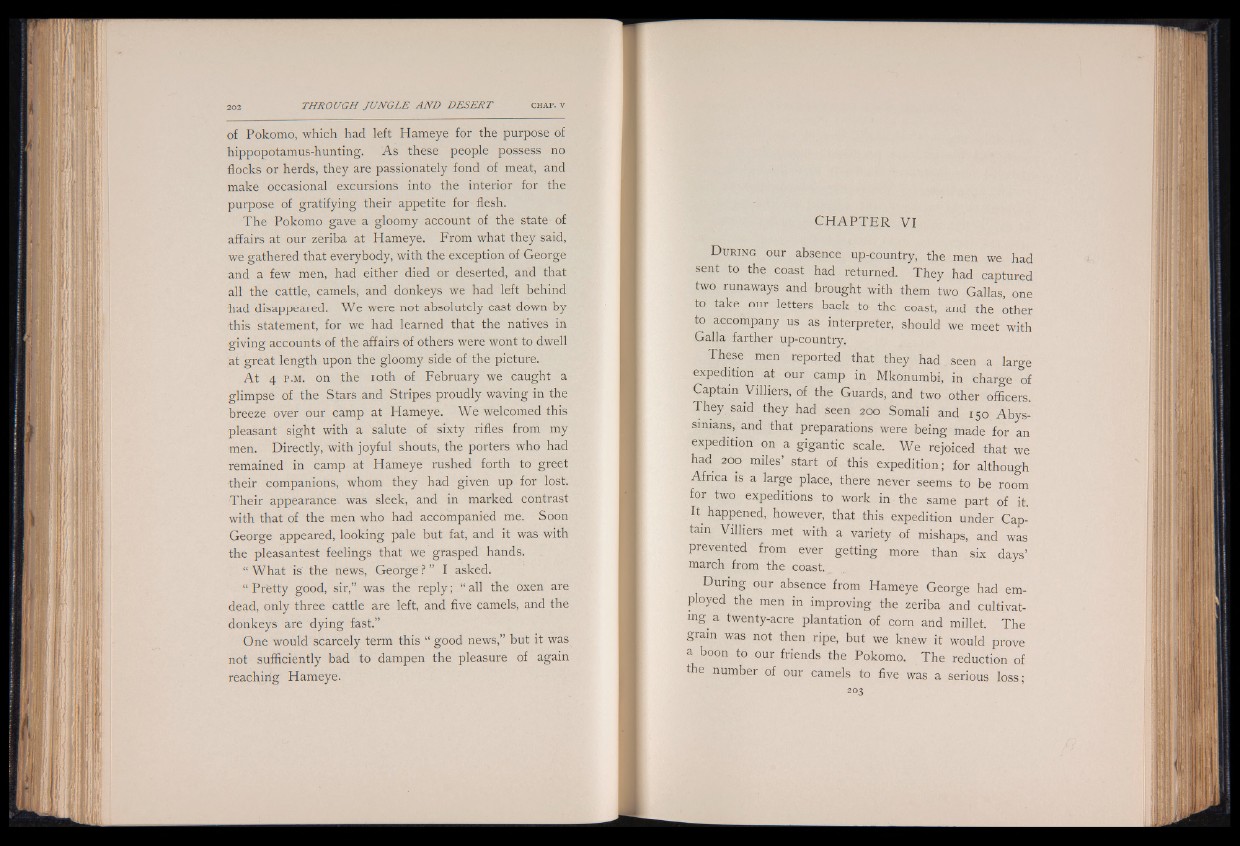
of Pokomo, which had left Hameye for the purpose of
hippopotamus-hunting. As these people possess no
flocks or herds, they are passionately fond of meat, and
make occasional excursions into the interior for the
purpose of gratifying their appetite for flesh.
The Pokomo gave a gloomy account of the state of
affairs at our zeriba at Hameye. From what they said,
we gathered that everybody, with the exception of George
and a few men, had either died or deserted, and that
all the cattle, camels, and donkeys we had left behind
had disappeared. We were not absolutely cast down by
this statement, for we had learned that the natives in
giving accounts of the affairs of others were wont to dwell
at great length upon the gloomy side of the picture.
At 4 p .m . on the ioth of February we caught a
glimpse of the Stars and Stripes proudly waving in the
breeze over our camp at Hameye. We welcomed this
pleasant sight with a salute of sixty rifles from my
men. Directly, with joyful shouts, the porters who had
remained in camp at Hameye rushed forth to greet
■their companions, whom they had given up for lost.
Their appearance was sleek, and in marked contrast
with that of the men who had accompanied me. Soon
George appeared, looking pale but fat, and it was with
the pleasantest feelings that we grasped hands.
“ What is the news, George ? ” I asked.
“ Pretty good, sir,” was the reply; “ all the oxen are
dead, only three cattle are left, and five camels, and the
donkeys are dying fast.”
One would scarcely term this “ good news,” but it was
not sufficiently bad to dampen the pleasure of again
reaching Hameye.
CH A P T E R VI
D u r in g our absence up-country, the men we had
sent to the coast had returned. They had captured
two runaways and brought with them two Gallas, one
to take our letters back to the coast, and the other
to accompany us as interpreter, should we meet with
Galla farther up-country.
These men reported that they had seen a large
expedition at our camp in Mkonumbi, in charge of
Captain Villiers, of the Guards, and two other officers.
They said they had seen 200 Somali and 150 Abys-
smians, and that preparations were being made for an
expedition on a gigantic scale. We rejoiced that we
had 200 miles’ start of this expedition; for although
Africa is a large place, there never seems to be room
for two expeditions to work in the same part of it.
It_ happened, however, that this expedition under Captain
Villiers met with a variety of mishaps, and was
prevented from ever getting more than six days’
march from the coast.
During our absence from Hameye George had employed
the men in improving the zeriba and cultivating
a twenty-acre plantation of corn and millet. The
grain was not then ripe, but we knew it would prove
a boon to our friends the Pokomo. The reduction of
the number of our camels to five was a serious loss;
203